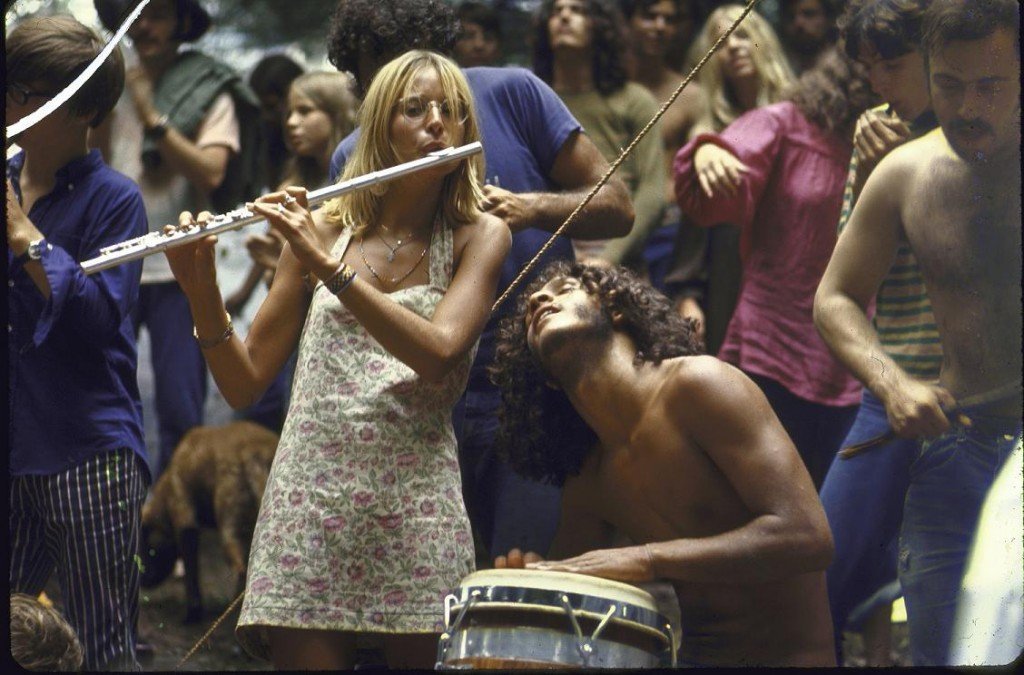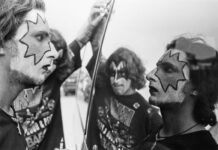“The only truth is music” – Jack Kerouac
~~~~~~~~~~~~~~~~~~~~~~~~~~~~~~~~~
As neither the enjoyment nor the capacity of producing musical notes are faculties of the least use to man in reference to his daily habits in life, they must be ranked amongst the most mysterious with which he is endowed.
Charles Darwin, The descent of man
So intimate, this Chopin, that I think his soul should be resurrected only among friends
T.S. Elliot, Portrait of a lady
~~{}~~
The scientist and the poet. Who of these two grasps human nature better? I smile to myself when I ask this question; like an alien that copes with human race with forbearance.
Arthur Clark in his book “Childhood’s End” conceived an alien species, the “Overlords” (is the amalgam of science and art scientific fiction?).
The Overlords are way too cerebral with a far more developed technology than ours and…philistines.
They come to our planet to shed light on this very oxymoron that also puzzled Darwin: The passion and obsession the habitats of this very planet for something “worthless” such as music.
Ambassadors of them attend a concert. When it is over, they congratulate the musicians for their skills, they praise the composer’s creativity and they return to their spaceship to go back to the star where they came from.
But they are none the wiser (just like the equally philistine Darwin) why this human activity has such a determining impact on their lives. What has to offer?
Some neurologists now maintain that music has similar excitement with orgasm; less eruptive, but lasts longer.
But let us start with the preliminary.
~~{}~~
Music is present to all civilizations, no matter how “primitive” or isolated they are.
The various tribes of Aborigines of Australia, despite the fact that they speak many different languages, can communicate with each other with their songs (read “The songlines” of the travel writer Bruce Chatwin).
The Eskimos resolved their differences with song contests and the biggest insult to somebody was to tell them that they can’t sing.
The natives of Arnhem utilize music as a means which teaches them everything they need to know about their civilization and their place in the mundane and supernatural world.
In Bali, gamelans, the impromptu ensembles of every village, were part of social life to such extent that there is no definite word for music. The music is the village.
In many tribes of “black Africa” everyone was a musician too, regardless of their “profession”. Their music is so complex, that a western inhabitant has trouble getting into it.
In ancient China music had to do with man’s affinity with universe. Through music a man would take the responsibility to enhance or shake world’s equilibrium.
Among the prehellenic marble figurines of Cyclades, there are many of musicians. Pythagoras of Samos maintained that Cosmos and Music were the selfsame thing. The importance of music for the ancient Greeks is also widely known.
~~{}~~
The evolutionary psychology seems to go along with the evolution of humanity and ethnomusicology.
Kids enjoy music before they learn to talk, before they even learn to walk.
Studies in 2006 testified that children are born with the innate ability of perfect pitch.
(Perfect pitch, is the ability of a person to identify a musical note without the benefit of a reference tone; hearing the car’s horn and identifying that it is an “A”)
This ability wanes as the time passes, especially when the two-year-old kids begin to talk. Yet people like the Chinese, whose language is tonal, the ability of perfect pitch is also evident to the adults to a much higher percentage, than to the non-tonal ones.
~~{}~~
The children are born with their mind set to accept music (as it happens with the rules of language, too).
After all, since the very first moment they come into this world, they were embraced by rhythm. The main and constant “musical” background of their intrauterine life is their mother’s heartbeat.
Rhythm is the foundation of music and the inauguration of life.
~~{}~~
I remember of a party of heavily retarded people that came to the outdoor bar I was working during a summer. Those people had difficulty in drinking their juice with the drinking straw. Their escorts had their hands full helping them out.
But when a James Brown song blasted through the speakers, they all embraced the rhythm; tentatively in the beginning by tapping their foot or banging their head. Then some of them rose on their feet and began dancing.
They couldn’t dress themselves or speak properly, but they had the rhythm inside them to dance. And the most important: Music made them happy.
~~{}~~
It is not a coincidence that music stimulates our sexual mood.
“We listen to music with our muscles” said Nietzsche, the philosopher who craved for a dancer god.
The truth is that we hear music with our whole body – and more than this.
–
MRI scans show something that the poets had intuited (and Darwin was unaware of): While speech, vision and the rest of the brain functions are located in specific areas, music stimulates at least twelve different parts of the brain.
When a man listens to their favourite music and especially when they are part of it (singing, clapping their hands or dancing), the encephalography is similar to the orgasm’s.
–
If you take a look at an MRI brain during orgasm, you will think that the man’s brain has exploded.
Now think of all this sentimental, mental and physical tension you experience during a two-hour gig, concentrated in a few seconds!
You would scream out of pleasure (in case your head hadn’t already exploded).
This is not something you get by reading a book – I have to admit it, even though I serve the speech.
Yet, just because I caught a glimpse of music as a semi-amateur guitarist, I do know that the almost spiritual communication that is developed between the group members, especially when they improvise, is one of the purest delights a man can relish.
–
This communication establishes very strong bonds. It is exactly what the “primitive” tribes aimed for when all of their members participated and cooperated in music.
~~{}~~
Ecstasy is a synonym to life (and dance) since man’s infancy.
Maenads and shamans, dervishes and sorcerers, they communicated with the divine thanks to music (and with a little help of the entheogenic plants).
In a sense, music created God.
(My friend Otto informed me that Tolkien appointed god to create the world by singing. Well, Tolkien is kind of connoisseur with regard to gods and demons).
Notice that rituals are indissolubly linked with music to all religions.
Just religions?
~~{}~~
Merlin Donald in his book “Origins of the Modern Mind” maintains that “music is the cornerstone of human civilization”.
Before language and conceptual thinking evolve, Homo went through a “pantomimic” civilization where the presentation of the sentiments, events and stories took place through body language, rhythm and sound as well, but not through speech.
(At this point let us recall Zorbas, who when “ran out” of words, he would dance to explain to his interlocutor what words had failed to do)
~~{}~~
Oliver Sacks, my ever favourite neurologist, gives us a load of examples about the therapeutic healing power of music.
People with aphasia, Parkinson’s disease, PTSD (Post Traumatic Stress Disorder) or schizophrenia, would respond more effectively to music than any other attempt of communication, as if it is nestled in the deeper levels of the mind.
A lady with Parkinson’s disease who had trouble to talk and walk, music made her dance and sing and she was feeling like: “As if I remember all of a sudden my own self, my own living purpose”.
~~{}~~
Musical memories are proved much more stimulating than any “Proust’s madeleine” while they remain unaltered even when every other memory is lost.
Patients with Alzheimer’s disease who could not even remember their name and their family, who could not identify a shoe as a shoe or talk, people who were living unconscious of their own self, could sing unhesitatingly operas in their entirety or perform a full concert (if they had musical education of course).
–
The case of an overage virtuoso pianist in the final stages of Alzheimer’s disease is illuminating.
For as long as he was waiting at the backstage of Carnegie Hall, he didn’t even know where and who he was. If they didn’t take him to the piano, he would remain forever rooted to the spot staring at the wall.
But once the intro of the concert kicked in and he laid his fingers on the piano, he became again the great pianist that everybody (except perhaps his own self) knew.
He performed the entire concert flawlessly and when the music was over he went back to darkness, indifferent to the applause of the tear-stained audience.
«When the music’s over, turn out the lights».
~~{}~~
We could say a lot more about music, but I believe that these lines point out that Darwin could be wrong.
Music is not just useful for man, music is necessary.
Besides its all-important social merit as a mean that contributes to the connection of the members, besides its crucial impact on human evolution, more than the definition of attributes (racial, national, personal), music provides something that is the quintessence of human existence: Pleasure!
(Don’t bother asking what the use of pleasure is.)
~~{}~~
Sanejoker drew material from:
“Musicophilia: Tales of Music and the Brain” by Oliver Sacks.
“Music, Society, Education” by Christopher Small.
~~~~~~~~~~~~~~~~~~~~~~~~~~~~~~~
The photo is from Woodstock of 1969.
~~~~~~~~~~~~~~~~~
Sanejoker’s Facebook page:
https://www.facebook.com/sanejoker
Translated by Alexandros Mantas
https://open.spotify.com/artist/7qasikNVdTDZ1eUY0FzIHv









